Asia-Europe Cultural Festival: 2024 | Highlights
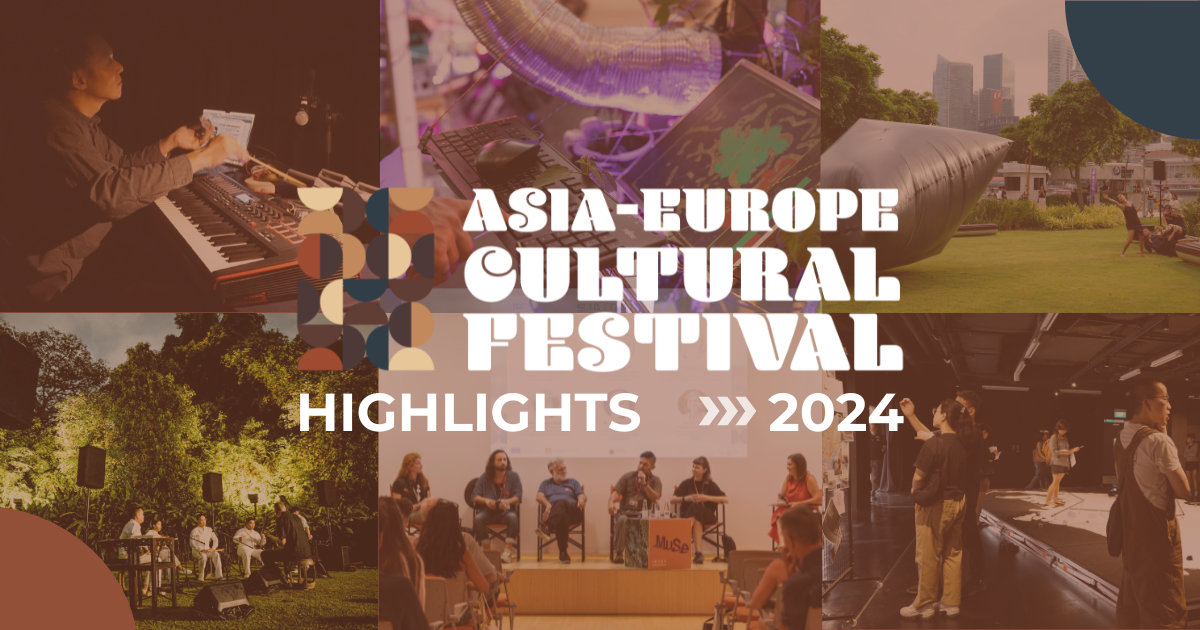
The 6th edition of the Asia-Europe Cultural Festival successfully took place in Singapore and Italy from June to September 2024. Organised by the Asia-Europe Foundation (ASEF), this arts festival brought together artists and audiences from Asia and Europe in a celebration of cultural diversity and artistic collaborations.
Since its inception in 2018, the Festival has travelled in several locations in Asia and Europe to raise awareness of diverse cultures, facilitate international exchanges and provide fora for dialogue amongst arts communities. From its first edition, the Festival has incorporated new formats and has transformed from a purely showcasing festival to a fully curated cultural event that equally serves as a cultural diplomacy platform.
This year’s Festival was the biggest in scale organised so far, offering a diverse range of programmes including music, video exhibitions, multidisciplinary art installations, contemporary dance and film. To reach a wider audience, it was presented in 3 key events: the Curtain Raiser in Singapore, the main programme in Italy, and the Closing Curtain back in Singapore, ASEF’s home base.
In 2024, the Asia-Europe Cultural Festival marked several milestones thanks to enhanced partnerships with multiple international institutions. With 3 programming partners, the support of 4 government bodies, and the collaboration of several arts organisations, the Festival reached more than 9000 people in Asia and Europe in a span of 4 months.
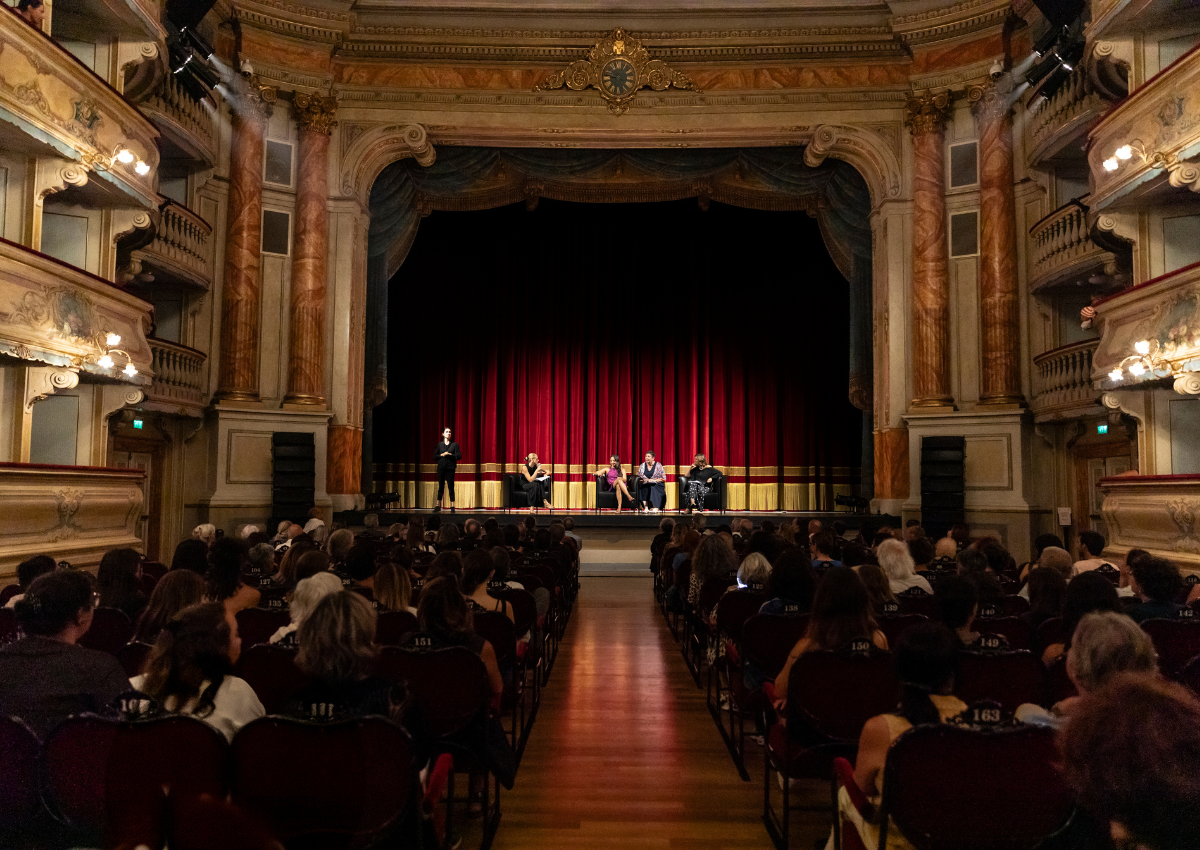 | 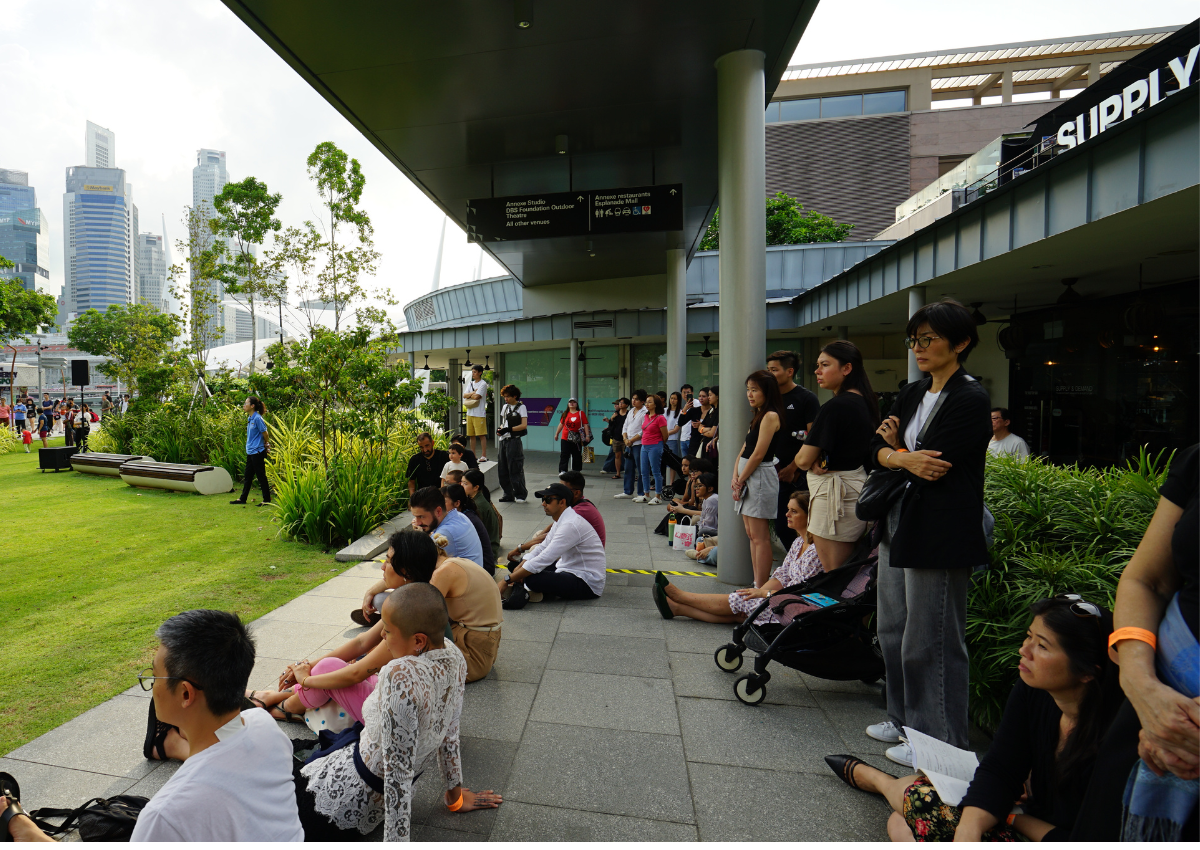 | |
| 1. Full house at the Teatro Zandonai in Rovereto, Italy for the performance of The Rite of Spring. © Monia Pavoni | 2. Audiences from all walks of life witnessed Wreck at the Esplanade outdoor space in Singapore. © Asia-Europe Foundation |
The main Festival programme was presented in Italy for the first time as a “festival within the festival” in partnership with Oriente Occidente, a cultural institution that has been bridging people for over 40 years through various artistic practices. Based in Rovereto, in Northen Italy, its mission is to overcome boundaries by bringing influences of the Eastern artistic tradition with Western experimentation. The partnership between ASEF and Oriente Occidente reflected a mutual alignment of cultural and artistic values to inspire dialogue and forge connections that transcend geographical boundaries. Albeit being a small town with nearly 33,000 residents, Rovereto offered a dynamic and rich number world-known cultural institutions and events. The cultural richness of the local area has allowed ASEF to collaborate with prominent venues like Mart Museum in Rovereto and MUSE Museum in Trento.
A significant milestone of the Festival’s 6th edition was the introduction of a new art residency programme. In 2023, ASEF Culture successfully piloted a residency for the artists of X, a multidisciplinary performance that was showcased in last year’s edition. As ASEF constantly advocates for cross-cultural collaborations and knowledge exchange, implementing residency programmes is essential in providing time, space and resources for Asian and European artists to research and develop new artistic projects.
This year, ASEF Culture supported 10 artists through its hybrid residency programme. One residency project supported the encounter of 2 music ensembles: Tempo Reale (Italy) and Siong Leng Musical Association (Singapore). The musicians connected online for several months and then met in Singapore for an on-site residency in collaboration with Temenggong Artists-In-Residence. Despite the huge differences in their cultural background and research methods, the artists were able to combine Nanyin music, a Chinese intangible heritage, with electroacoustic music and sound arts. The preview of the project, titled BRIDGE, was presented in Singapore last June as Curtain Raiser of the Festival 2024. The final concert, performed at Mart Museum in Rovereto last September, was a groundbreaking collaboration that merged the two worlds. The artists presented a dialogue in the form of musical improvisation, created through continuous experimentation with respect and deep understanding of each other’s artistic practices.
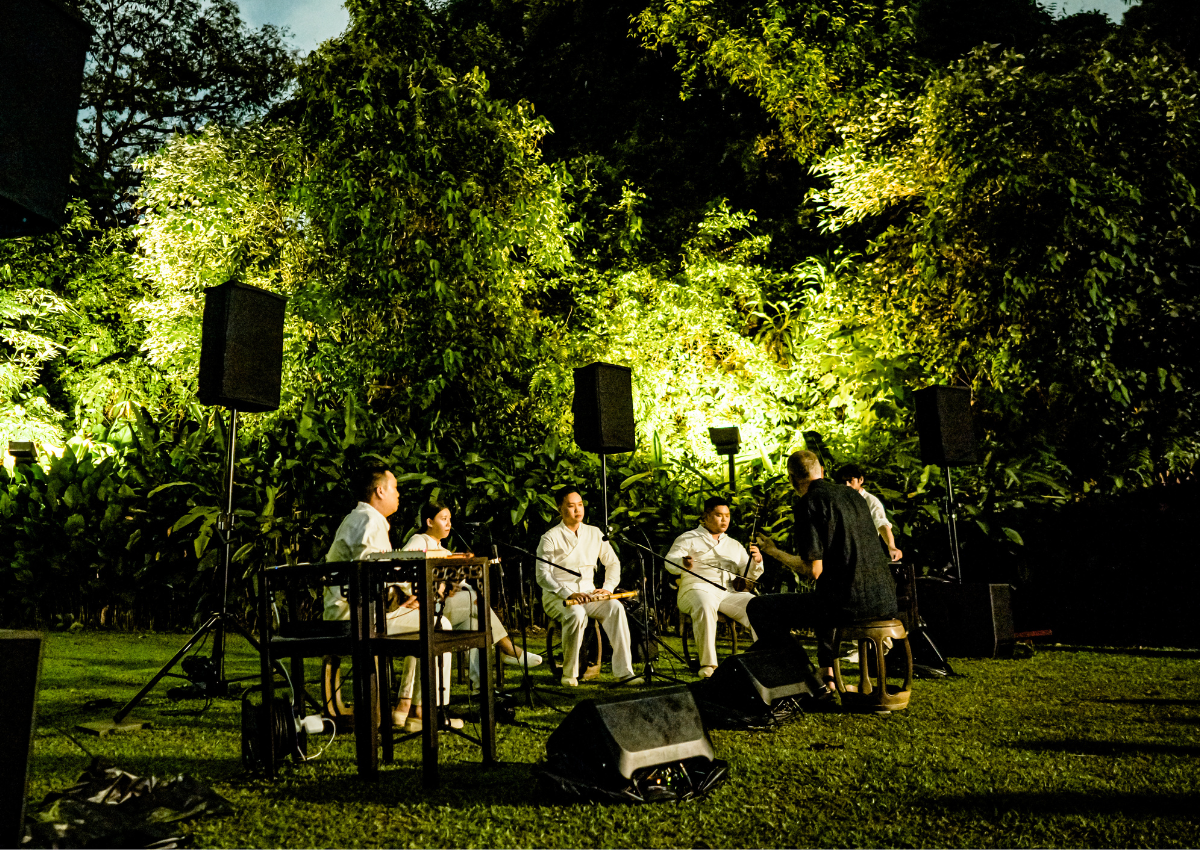 | .png) | |
| 3. Artists from Tempo Reale (Italy) and Siong Leng Musical Association (Singapore) during the concert at Temenggong, Singapore. © Temenggong Artists-In-Residence | 4. Ashley Ho (Singapore) and Domenik Naue (Germany) presented an emotional performance-installation piece both in Italy and Singapore. © Monia Pavoni |
Contemporary dance, installation and poetry are at the centre of Last Portrait, the second project supported through the residency programme. Ashley Ho (Singapore) and Domenik Naue (Germany) together with Pietro Marullo (Italy) as artist coach, started their research in Solo, Indonesia in March, followed by online meetings and another on-site residency in Italy where they presented the second iteration of the project. Their residency was another opportunity for the Festival to engage with like-minded cultural organisations to support artistic work: from Studio Plesungan in Indonesia, to Dansateliers and Over het IJ in Europe. Weaving together text, sound, dance and visual poetry, Last Portrait is a performance-installation on loss, grief and distance. Although Ashley and Domenik grew up in different environments, the artists were connected in their personal narratives of labour and care, botany and illness, arrival and departure, tradition and regeneration. As the performance always remains an open question and an offering, the audiences both in Italy and Singapore, witnessed a very emotional piece.
The presentation of Last Portrait in Singapore for the Festival Closing Curtain created the opportunity to get another partner on-board. Hence, the performance was presented in collaboration with local organisation Dance Nucleus in the framework of the multidisciplinary event VECTOR#5: Psychogeographies. Housed at the Esplanade Annexe Studio, VECTOR#5 revolved around the concept of mobility, looking at the contexts of the artists’ works in relation to the cities or places they have been or lived in. Through video installations and immersive exhibition of artefacts in different mediums, it explored how geographies affect the artists’ creative processes in response to their environment. The exciting programme incorporated live performances, artist talks and exhibitions, creating a truly immersive experience throughout the closing festival weekend in Singapore (27-29 September).
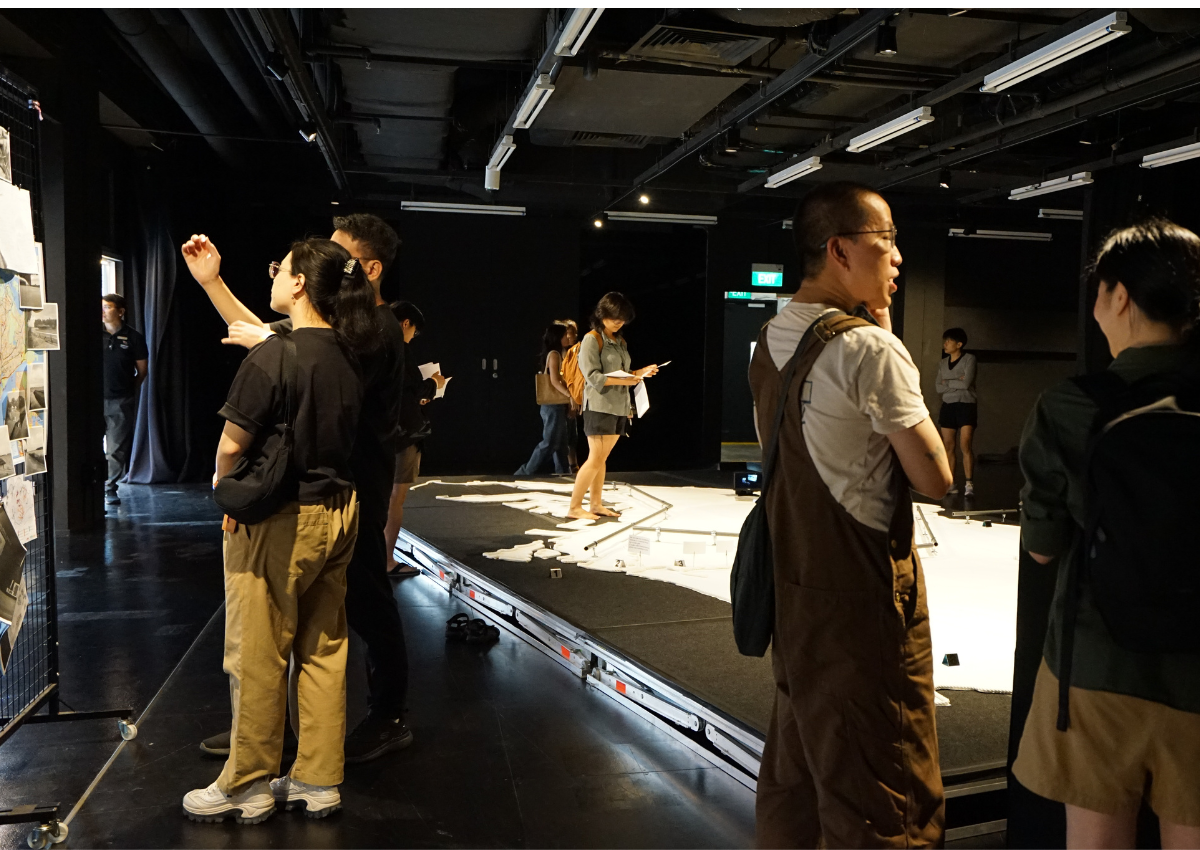 | 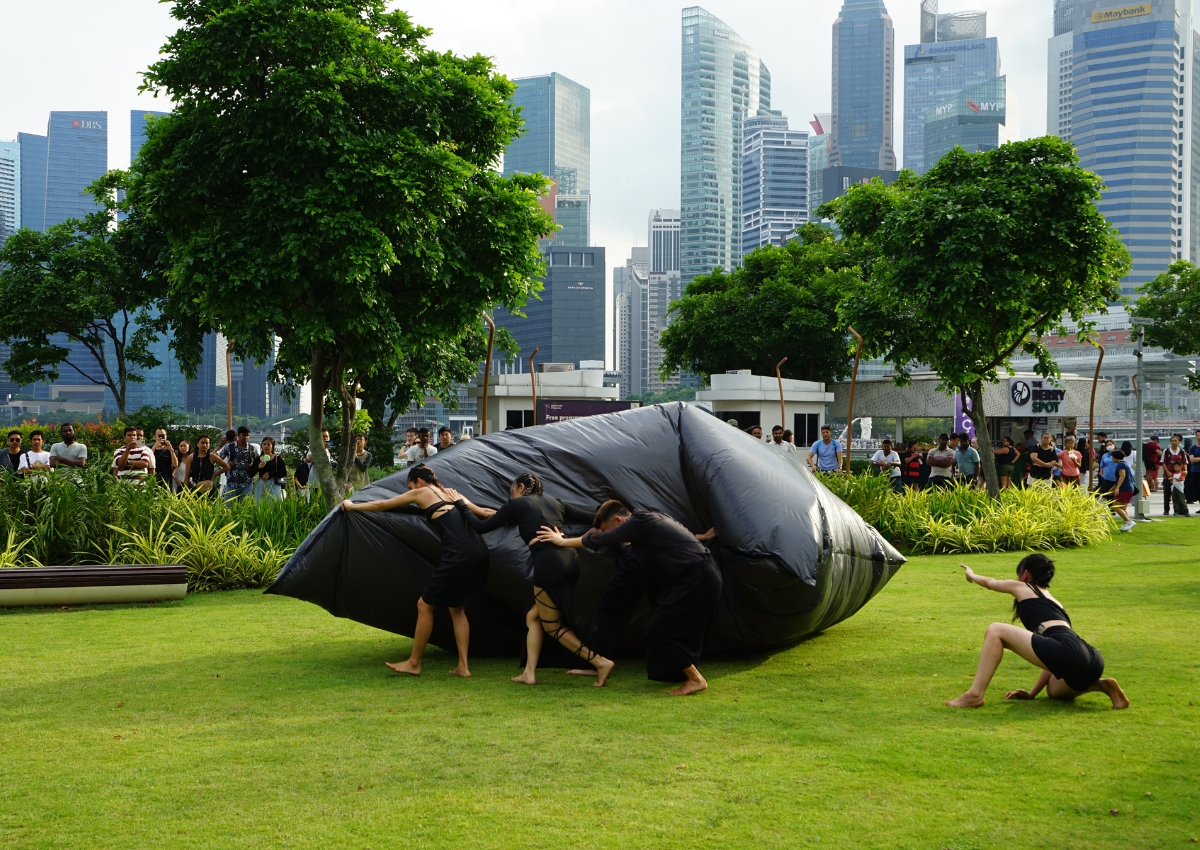 | |
| 5. Spectators exploring the multidisciplinary exhibition Vector#5: Psychogeographies at Esplanade Annexe Studio, Singapore. © Asia-Europe Foundation | 6. Wreck, with its visually fascinating soft black plastic sculpture, captured lots of audiences at the Esplanade outdoor space. © Asia-Europe Foundation |
The Closing events culminated with the presentation of Wreck- List of Extinct Species at the Singtel Waterfront Theatre Lawn in Esplanade. The site-specific performance by Pietro Marullo with its distinctively massive centre-piece, a soft black plastic sculpture that looms over the audience and dancers, was staged outdoors with Singapore’s iconic architectural backdrop. The show, moving between contemporary dance, performance art, visual art and installation, examined the tension between human vulnerability and resilience in the face of existential threats. This special iteration of the piece involved 5 Singapore-based artists (Neo Kexin, Neo Jialing, Michelle Ang, Kwek Yixuan and Daniel Navarro Lorenzo) selected through an open call to encourage collaborative opportunities within the local arts community.
The importance of local community engagement was also highlighted by the project Biomodd [TT015], presented in the main festival programme in collaboration with MUSE Musuem in Trento (Italy). The interactive art project has seen over two dozen iterations all over the world by the global collective Space Ecologies Art and Design (SEADS). The new iteration, anchored on the concepts of interdependency and intersection of art, technology and ecology, was created through a 4-day community workshop led by Diego Maranan (Philippines) and Amy Holt (United Kingdom). The resulting hybrid interactive art installation was able to ignite critical conversations about our ideas on ecology, progress and our technological future within the audiences, art and scientific communities.
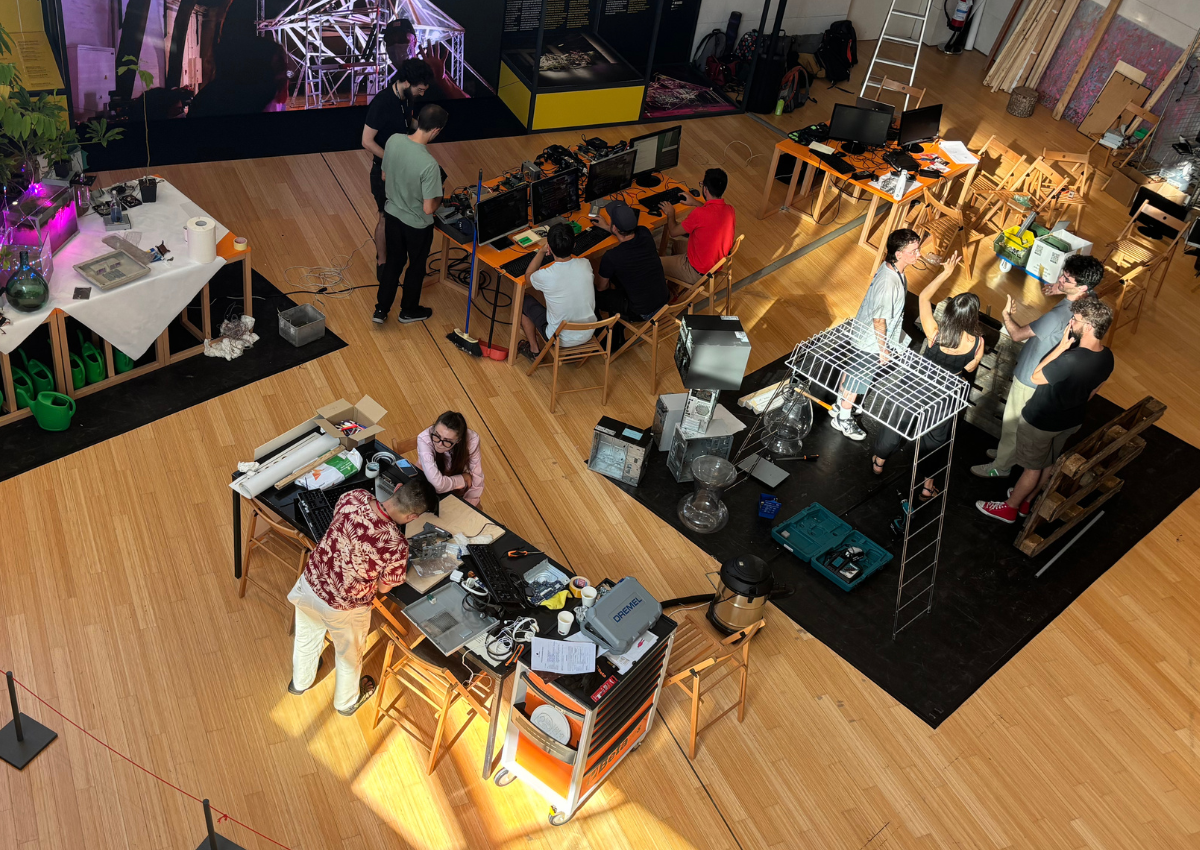 | 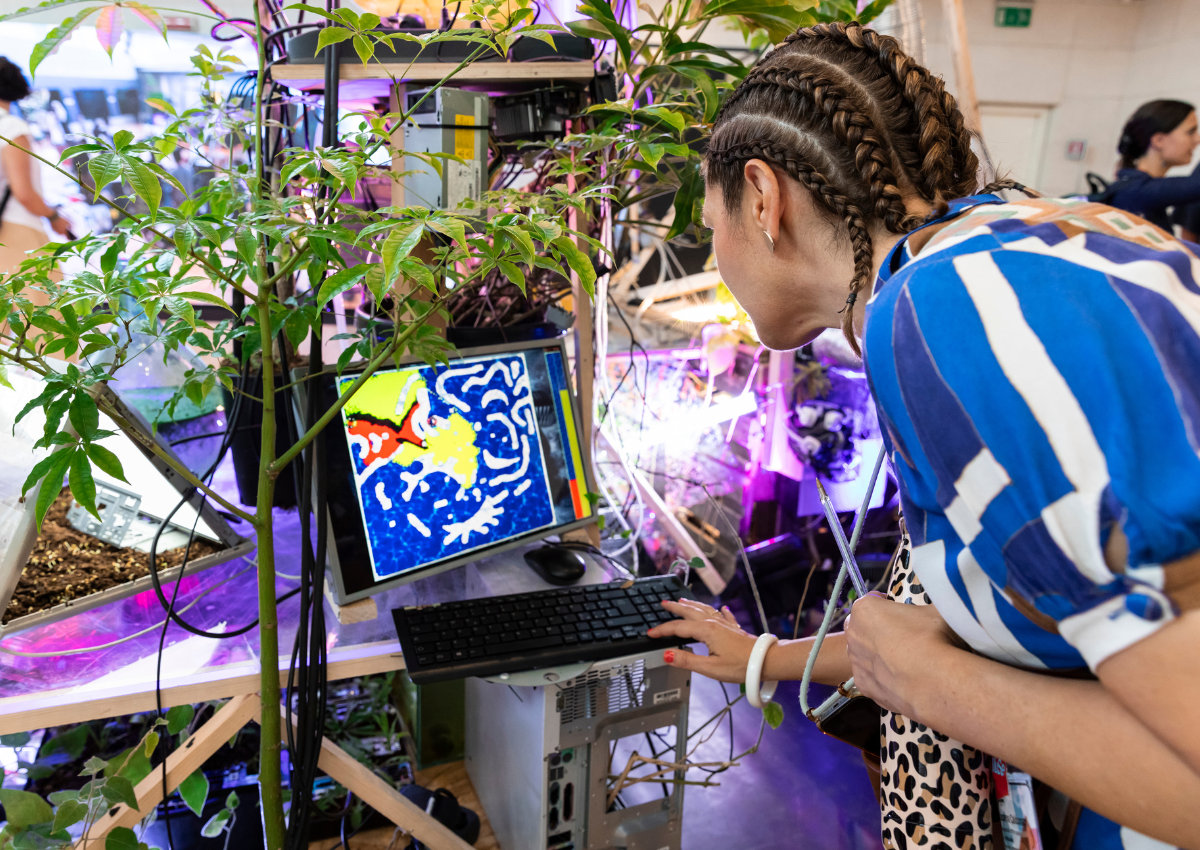 | |
| 7. Community workshop for Biomodd [TT015] installation. © Emilia Brundu | 8. Biomodd [TT015] interactive installation at MUSE in Trento, Italy. © Monia Pavoni |
These themes were further investigated by the roundtable titled BREAKING BOUNDARIES: Rethinking Art, Technology, and Sustainability for the Future that brought together speakers from different disciplines including art, science, technology, environmental sustainability and sociology. The discussion explored multidisciplinary approaches to address global challenges, including but not limited to climate change. The roles of communities were emphasised as we recognise the importance of interdependencies and seek to develop inclusive strategies for a more resilient and adaptive world.
The relationship with our surroundings was further explored in Sound of X, a video exhibition presented at the Biblioteca Tartarotti in Rovereto during the main festival programme in Italy. Featuring artists from China, Germany, Indonesia, Philippines and Viet Nam, this project initiated by Goethe-Institut invited artists to capture the sounds of their hometowns. The collection of video soundscapes took the listeners to a virtually immersive experience that ties the sound of cities to people’s sense of place, offering alternatives to the usual visual perceptions of the places we live in.
 |  | |
| 9. Speakers from different sectors during the roundtable at MUSE. © Monia Pavoni | 10. Sound of X exhibition at Biblioteca Tartarotti in Rovereto, Italy. © Monia Pavoni |
With these diverse artistic programmes, the Festival stayed true to its core of showcasing the best of contemporary art forms and practices from Asia and Europe. Besides being celebratory events, these cultural initiatives are also strategic ways in promoting mutual understanding and strengthening international cultural relations through soft power. ASEF deliberately incorporated artists dialogues, roundtable discussions and institutional receptions in the Festival programme to provide opportunities for conversations across countries and sectors.
Throughout the Festival, ASEF hosted various receptions that welcomed artists, representatives of arts institutions and government officials from embassies and Ministries of Foreign Affairs from Asian and European countries. As we connect with people, we actively cultivate cross-cultural dialogue and collaboration, advancing cultural diplomacy between Asia and Europe. The two official receptions, hosted in Italy and Singapore, were followed by Festival events showcasing the interactions between heritage and contemporary practices.
 | 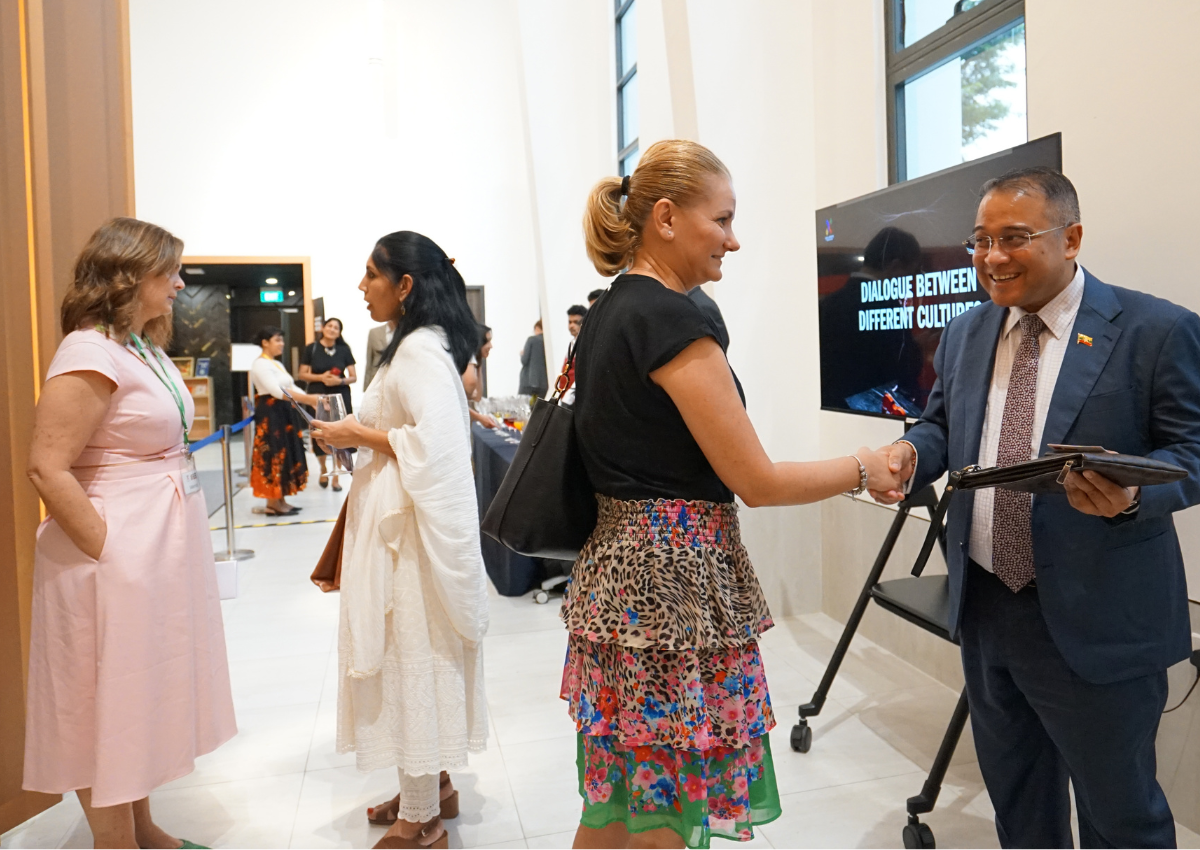 | |
| 11-12. Government representatives from Australia, Hungary, India, Italy, Kazahkstan, Myanmar, Poland, Romania, Singapore, Switzerland and EU attended the events in Italy and Singapore. © Monia Pavoni (left) Asia-Europe Foundation (right) | ||
The Rite of Spring by renowned choreographer Seeta Patel was presented at Teatro Zandonai, a magnificent historical and cultural landmark in Rovereto. The show seamlessly fused the intricate footwork and dynamic movements of the Indian classical dance Bharatanatyam with Stravinsky’s classical score.
For the Closing Curtain in Singapore, the reception was followed by the screening of Pyo Chit Lin (My Darling), the earliest surviving colour film from Myanmar, at the Oldham Theatre, National Archives of Singapore. The Asian Film Archive and Memory! Cinema Association successfully restored this film in 2017. The silent movie was accompanied live by Malaysian musician Kent Lee who composed a new score for the film. Taking inspiration from the soundtrack created by Burmese musicians, Kent used a unique fusion of traditional and contemporary music to portray the story of the movie.
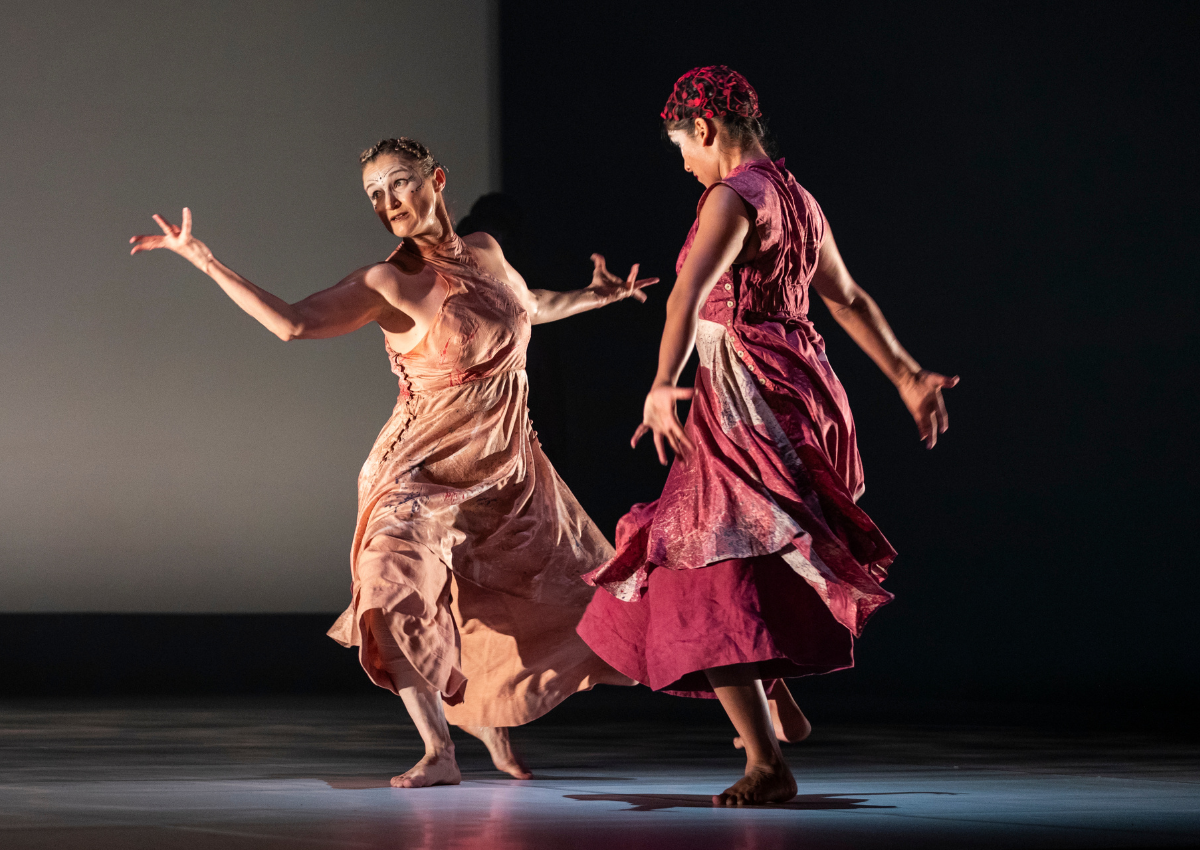 | 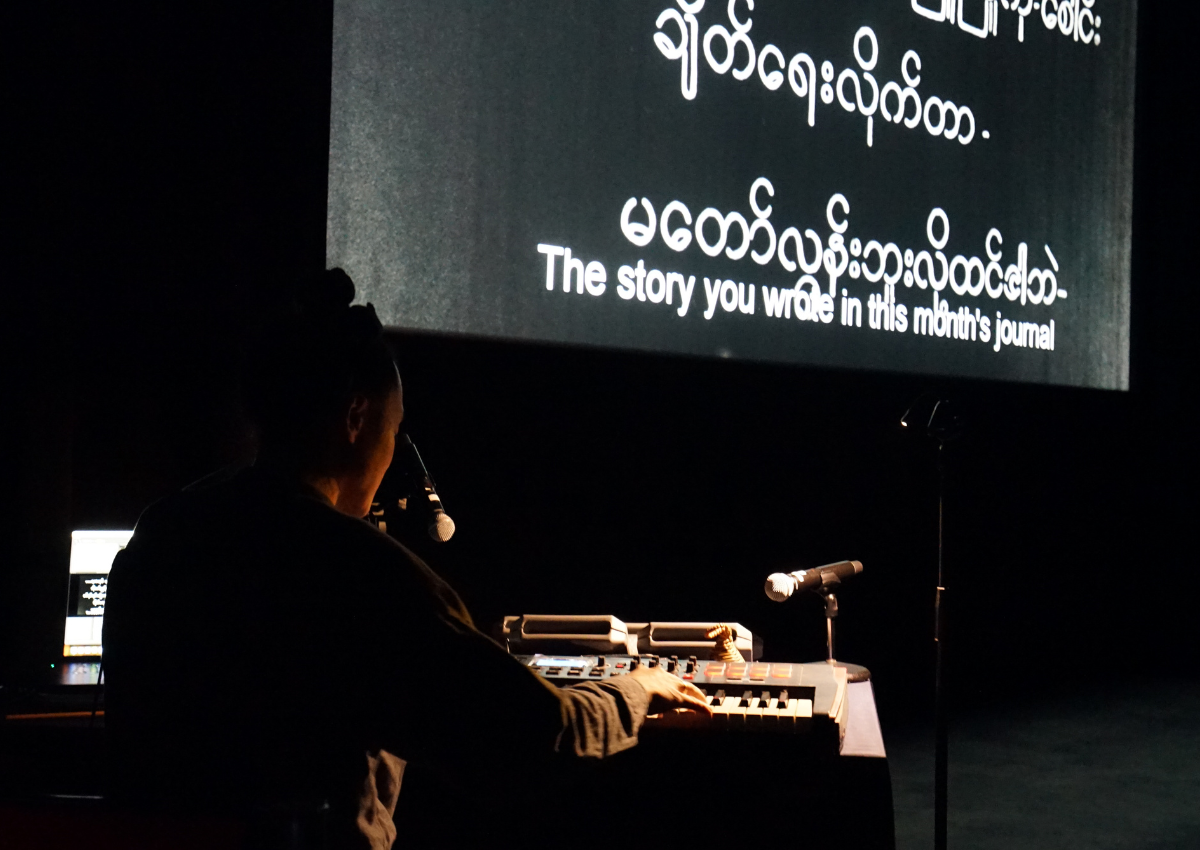 | |
| 13. The Rite of Spring at Teatro Zandonai in Rovereto, Italy. © Monia Pavoni | 14. Kent Lee (Malaysia) playing live music during the screening of Pyo Chit Lin in Singapore. © Asia-Europe Foundation |
Both events showcased the vital importance of preserving intangible heritage as well as the integration with modern practices that allows us to create spaces and narratives that are both rooted in history and relevant to the present.
With extensive media coverage and sold-out tickets for all the events, the Festival was able to bring diverse arts forms together, proving the limitless possibilities of cross-cultural collaborations.
As the 6th edition of the Asia-Europe Cultural Festival came to a close, it left behind more legacies of artistic collaboration and cultural exchange, inspiring a brighter future of connection, insights and creativity between Asia and Europe.
The #AECFest2024 was organised by the Asia-Europe Foundation - ASEF with the support of European Union in Singapore and the Ministry of Foreign Affairs of Denmark.
The events in Italy were in partnership with Oriente Occidente and with the support of National Arts Council Singapore. Venue partners in Italy: MUSE Museum and Mart Museum. Thanks to: Goethe-Institut.
The events in Singapore were in partnership with Dance Nucleus, Asian Film Archive and Temenggong Artists-in-Residence with the support of the Embassy of Italy in Singapore.
